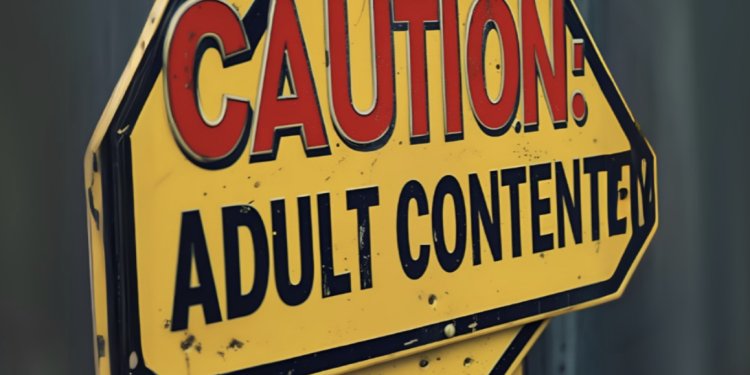AUSTIN — The Supreme Court of the United States has upheld a Texas law requiring pornography websites to implement age verification systems, marking a significant legal victory for Attorney General Ken Paxton and supporters of stricter online content regulation.
The ruling allows Texas to continue enforcing its 2023 statute that mandates adult websites verify users’ ages before granting access to explicit content. The decision comes after pornography distributors challenged the law, arguing it violated First Amendment protections.
“This is a major victory for children, parents, and the ability of states to protect minors from the damaging effects of online pornography,” Paxton said in a statement following the Court’s decision. “Companies have no right to expose children to pornography and must institute reasonable age verification measures.”
Legal Battle and Enforcement
The Texas law faced immediate legal challenges when it took effect in 2023, with adult entertainment companies arguing that age verification requirements would infringe on free speech rights and user privacy. Despite the litigation, Paxton successfully defended the state’s ability to enforce the statute during the legal proceedings.
The Attorney General’s office has already taken aggressive enforcement action under the law, filing suit against Aylo Global Entertainment, which operates several adult websites including Pornhub. Rather than comply with the age verification requirements, Pornhub chose to shut down access to its site entirely for Texas users.
Companies that violate the age verification requirements face substantial penalties: fines of up to $10,000 per day for non-compliance, an additional $10,000 daily if corporations illegally retain identifying information, and $250,000 if a child gains access to pornographic content due to inadequate age verification.
Growing Concerns About Broader Impact
While the Supreme Court ruling focused specifically on age verification and child protection, the decision comes amid growing public discourse about pornography’s broader societal effects. Mental health professionals, relationship counselors, and advocacy groups have increasingly raised concerns about how widespread access to explicit content may be affecting individuals and relationships.
Some experts point to research suggesting that regular consumption of pornography can create unrealistic expectations about intimate relationships, potentially affecting how individuals view themselves and their partners. These concerns extend beyond immediate content exposure to questions about how digital consumption patterns might influence real-world behavior and relationships.
“We’re seeing more discussions in therapy sessions about how online content consumption affects people’s expectations and relationships,” said Dr. Sarah Martinez, a licensed clinical social worker who specializes in relationship counseling. “The accessibility and intensity of today’s content is unprecedented in human history.”
The Escalation Concern
Child safety advocates and some researchers have also expressed concerns about what they describe as escalating patterns of consumption. They argue that initial exposure to explicit content can sometimes lead to seeking increasingly extreme material, and in some cases, progression to interactive platforms where users pay for personalized content.
Of particular concern to law enforcement and anti-trafficking organizations is the potential connection between certain types of online content consumption and the demand for commercial sexual exploitation. While establishing direct causal relationships remains complex, investigators note that the commercial sex trade—including human trafficking—often intersects with online platforms and payment systems.
“The digital marketplace has created new avenues for exploitation,” said Maria Rodriguez, director of a Texas-based anti-trafficking organization. “We’re seeing connections between online consumption patterns and real-world demand for commercial sexual services, which unfortunately includes trafficking victims.”
Privacy and Implementation Challenges
The Supreme Court’s decision doesn’t resolve all concerns about the law’s implementation. Privacy advocates continue to worry about how age verification systems will protect user data, particularly given the sensitive nature of the information being collected.
Technology companies must now navigate the challenge of creating verification systems that satisfy legal requirements while protecting user privacy. Some have proposed solutions involving third-party verification services or blockchain-based systems that would confirm age without storing personal information.
The law’s supporters argue that protecting children from explicit content outweighs these privacy concerns. “We require age verification for alcohol, tobacco, and other age-restricted products,” noted state representative Jessica Chen, who supported the legislation. “The same principle should apply to explicit content that can harm developing minds.”
National Implications
Texas joins several other states that have enacted similar age verification requirements, and the Supreme Court’s decision may encourage additional states to pursue comparable legislation. The ruling could establish a precedent for how courts balance First Amendment protections with state interests in protecting minors from explicit content.
Legal experts expect the decision to influence ongoing debates about online content regulation, platform responsibility, and the scope of state authority over internet-based businesses.
Moving Forward
As Texas continues to enforce its age verification law, the broader conversation about pornography’s societal impact appears likely to intensify. The intersection of child protection, free speech rights, privacy concerns, and public health considerations creates a complex policy landscape that legislators, technology companies, and advocacy groups will continue to navigate.
Attorney General Paxton indicated that his office will continue aggressive enforcement of the law, stating that any organization refusing to take necessary steps to protect minors from explicit materials will face legal consequences.
The Supreme Court’s decision represents a significant moment in the ongoing national debate about how to address the challenges posed by easily accessible explicit content in the digital age, particularly as they relate to child protection and broader societal concerns.
The full Supreme Court opinion is available through the Texas Attorney General’s office website.






